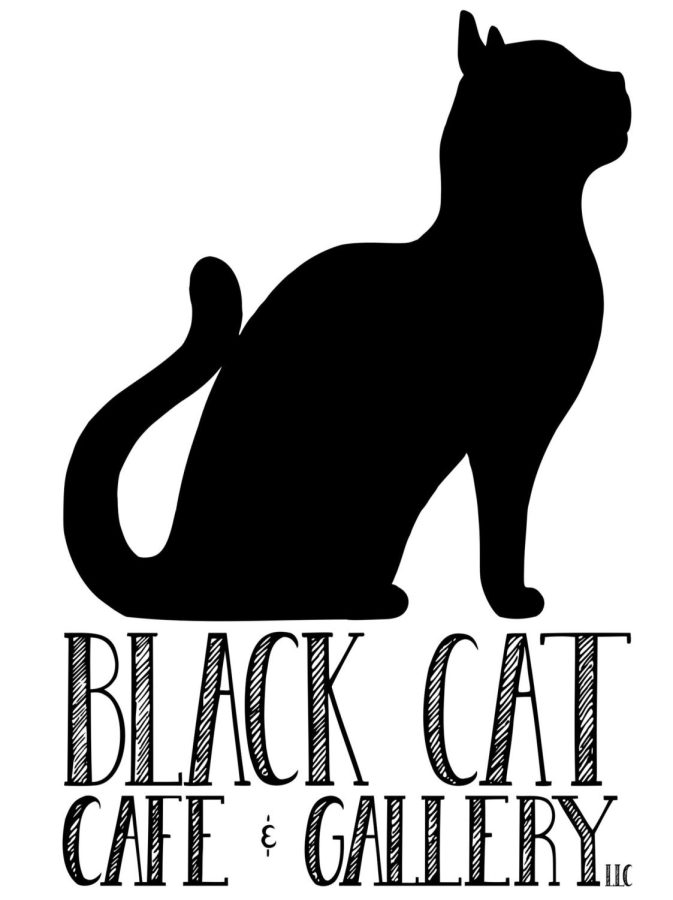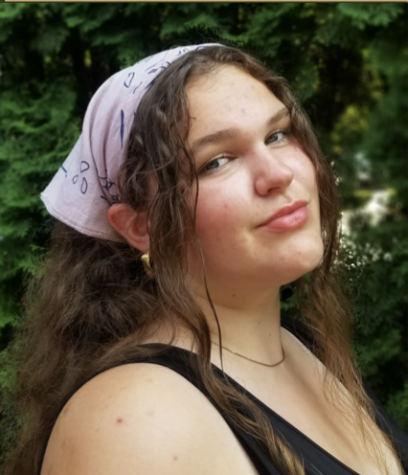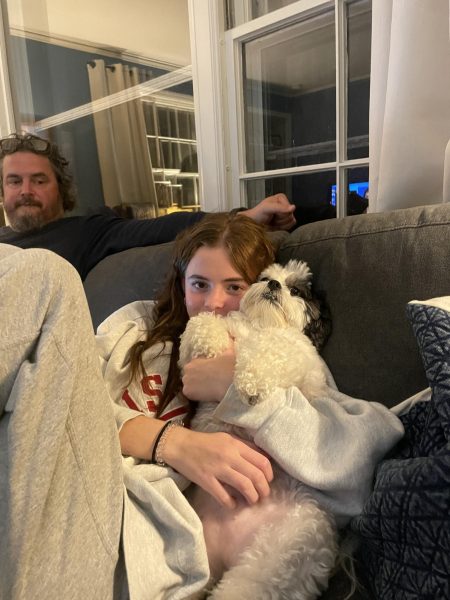There’s a New Cat in Town
It’s common to hear a buzz around town when a new business opens its doors in Stoughton, especially one with “cat cafe” in its name. Cats and cafes are two things that, separately, bring many people a considerable amount of joy, but together they can bring an unparalleled sense of euphoria. Contrary to popular belief, Black Cat Cafe & Gallery in downtown Stoughton does not have actual cats in the cafe. However, “black cats” of all kinds stand as the foundation for Stoughton’s newest art-inspired hang-out spot.
Black Cat Cafe & Gallery, located at 183 W Main St., is a combination cafe and art gallery that features art and other creations by local female, LGBTQ+, minority, and Black artists. The owner and mastermind behind it all is none other than Ali Tepp-Marwitz, who fell in love with Stoughton when she was young and returned to open her business.
“I did the Stoughton Art walk a few years back and have continued to do it. I realized [Stoughton is] as awesome as I thought. So when I started looking around for storefronts to start this whole thing, I knew Stoughton was the top pick for me,” Tepp-Marwitz says.
Among the artists featured at Black Cat Cafe & Gallery is Tepp-Marwitz herself, who is deeply passionate about all art forms. In 2018 she founded her
own art business, Alexandra Art+Design.
“I’ve tried just about every art form I could get my hands on, and I always ended up coming back to illustration. I started my art business making greeting cards [and] art prints, and I’ve just been slowly expanding. My end goal has always been to […] have a cafe and gallery because cooking, baking, making coffee […] those are just other art forms,” Tepp-Marwitz says.
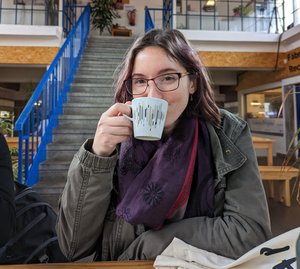
In addition to Tepp-Marwitz’s own work, the cafe is packed full of art prints, greeting cards, pins, jewelry, soaps, and even clothing from many other artists.
“I try to have a little bit of everything, so there’s something for everyone. I’ve got three different artists that do jewelry, but they all specialize in a form of jewelry making that’s completely different from one another. I try to make sure that everyone has something unique to bring to the table so that no artists will feel like they’re in competition with someone else,” Tepp-Marwitz says.
She understands the struggles artists face when it comes to getting their work recognized and featured in stores while still being paid a fair amount for their craft. Consignment, the process where a creator gives permission to another party to take care of their work or property until their item is sold, drives this issue.
“I would be trying to get my [art] into stores, and [I saw] how difficult that was. If you did consignment, they would want 50%, which is really hard for an artist to do because at that point, you’re not making anything. So that’s why I try to be a little easier on the artist here. I only take 20% so that they actually have a chance,” Tepp-Marwitz says. “I love helping people, especially creatives who are courageous enough to put themselves out there and show the world what they can do.”
One crucial part of Black Cat Cafe & Gallery is still in the works—the cafe. Tepp-Marwitz has faced many challenges on her journey to get the cafe up and running; waiting for contractors and finding funding are some of them. She must also install the kitchen and a handicap-accessible restroom in the cafe. She hopes to be at least serving drinks by the end of the month. Tepp-Marwitz often posts updates on her Instagram, @blackcat_cafe_gallery.
In addition to helping artists, Tepp-Marwitz is also committed to helping those with food allergies. Every item on Tepp-Marwitz’s menu is gluten-free, dairy-free, and vegetarian.
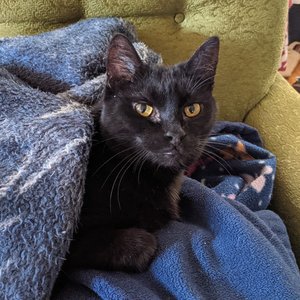
“I wanted to create a space where people with food allergies can come and hang out and know they can eat everything on the menu and know that there’s no risk of cross-contam- ination,” Tepp-Marwitz says. “I am working to alter the one or two recipes I have that contain peanuts so I can provide a peanut-free area too.”
Her menu includes a variety of sandwiches, soups, “itty bitty” pizzas, and an array of baked goods, including lemon and pumpkin bars, muffins, cookies, and pão de queijo, a (dairy free) Brazilian cheese bread. The full menu selection can be found on blackcatcafegallery.com.
The menu was inspired by recipes she discovered and created to accommodate her celiac disease. She also chose some comfort foods and reworked them to accommodate those with allergies. On the beverage side of things, two drinks on the menu are inspired by her travels. One drink is from Vietnam, and the other is from Portugal.
Between the extensive selection of art from local artists and the well-rounded food and drink selection, Tepp-Marwitz hopes to foster an atmosphere for the community to enjoy. She also hopes to inspire hesitant artists to follow their passions.
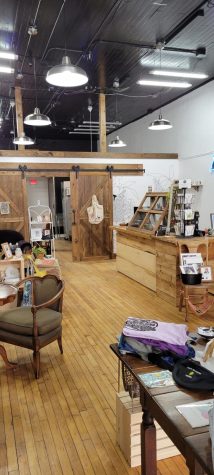
“I’m hoping to help inspire more people to be creative and help show artists that anyone that wants to do something in art [that] it is possible to make a living,” Tepp-Marwitz says.
Although the business has “cat cafe” in the name, there are no actual cats at the cafe. Due to exposure of cat dander and fur to food and drink, health and food safety would be put at risk. A separate ventilation system would need to be installed if Tepp-Marwitz were to have cats in the cafe, which is something she hopes to come back to at a later date.
Though there are no cats meandering about the cafe, that does not mean “cat” is just in the name—cats play an important role in the inspiration and meaning surrounding the cafe.
The name Black Cat Cafe & Gallery was inspired by Tepp-Marwitz’s love for cats, especially her own cat, Xena. But the name has taken on a slightly different meaning as the business developed.
“A lot of times, black cats are misunderstood or disliked. They are treated differently because of how they look or act. […] There’s so many black cats in shelters because of old wives’ tales, superstitions, things like that. I feel like a lot of us can relate to being treated and judged for being different—whether we look different, whether we act different—a lot of us can relate to black cats. The name black cat is in honor of all of us that can identify as a black cat. […] We’re not black sheep, we’re black cats,” Tepp-Marwitz says. “All black cats are welcome.”


